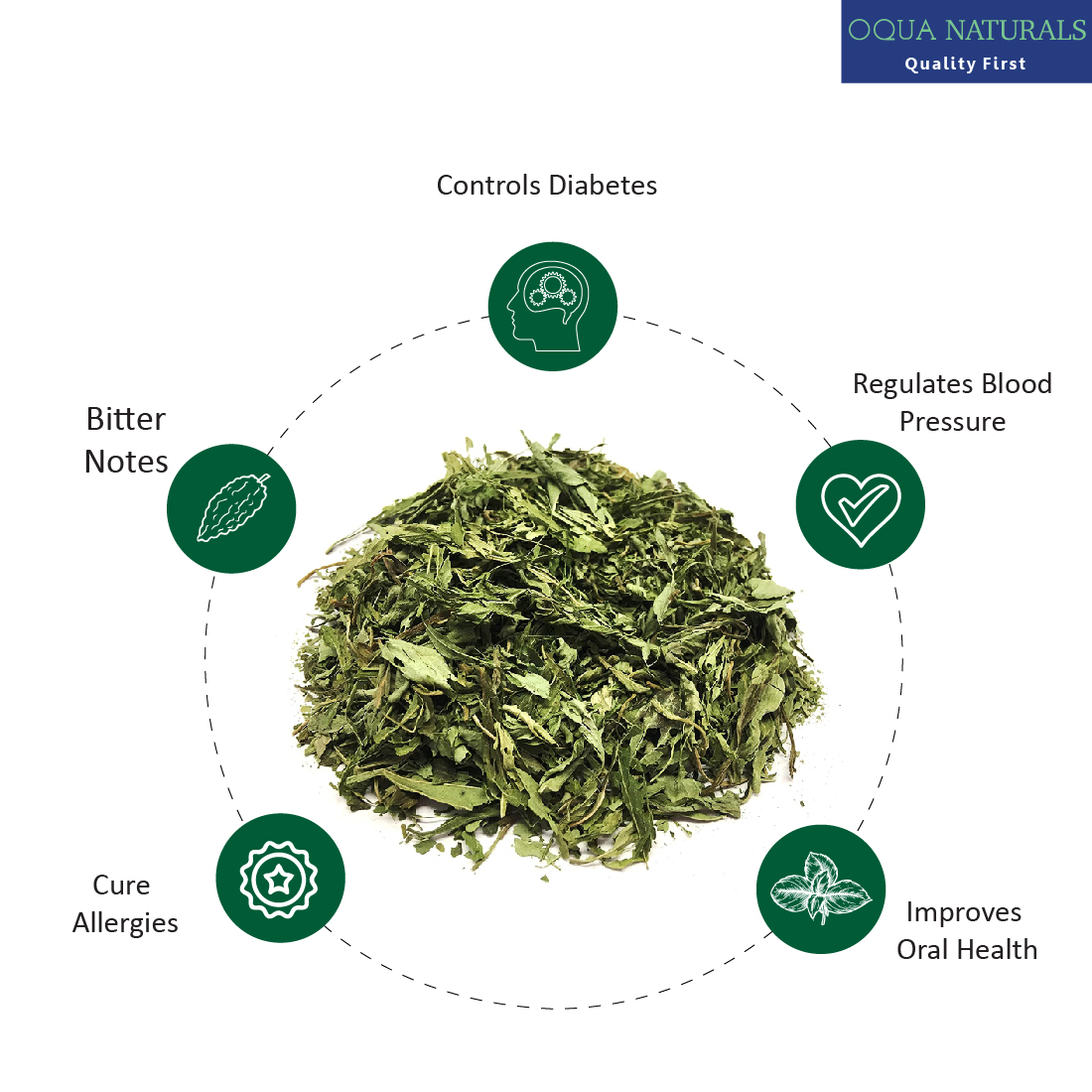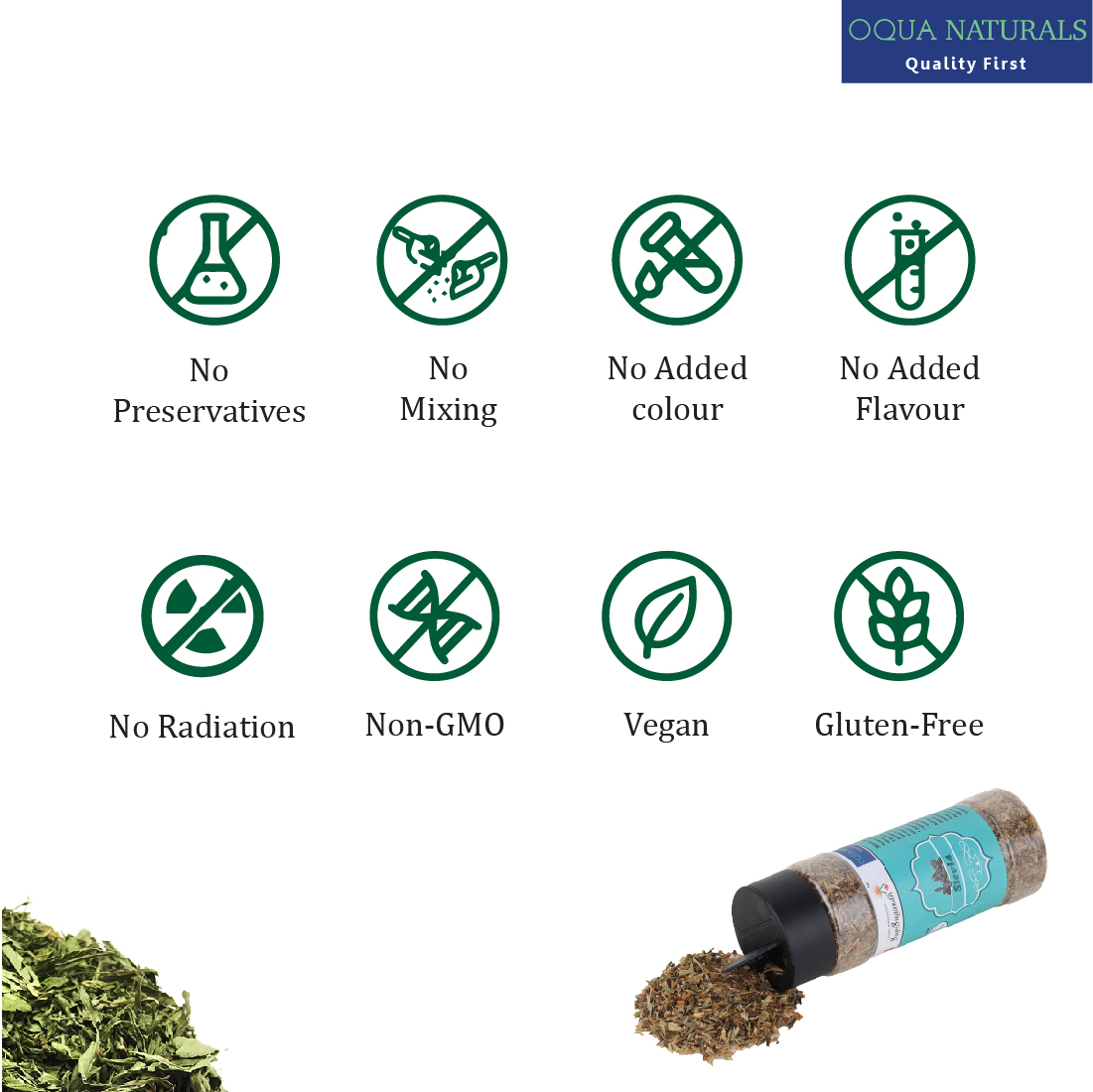Stevia is a natural sweetener and sugar substitute derived from the leaves of the plant species Stevia rebaudiana. Commonly known as sweet leaf or sugar leaf, stevia rebaudiana is a widely grown plant that belongs to the sunflower family and is native to Central and South America. Studies have shown it to be a safe, naturally derived, calorie-free sugar substitute and is increasingly used to sweeten food and drinks. Which have about 200 times the sweetness of sugar, are heat-stable, pH-stable, and not fermentable. The human body does not metabolize the glycosides in stevia, so it contains zero calories as a non-nutritive sweetener. Stevia taste has a slower onset and longer duration than that of sugar, and at high concentrations some of its extracts may have an aftertaste described as licorice like or bitter. Stevia is used in sugar- and calorie reduced food and beverage products as an alternative for variants with sugar.
Features and Benefits
- You may even get your sweet caffeine fix without calories or artificial sweetener. Some flavored waters also have stevia.
- If you have diabetes, stevia could be a way to sweeten your yogurt or hot tea without adding carbohydrates.
- Stevia is considered “no-calorie” on the FoodData Central (FDC)Trusted Source. Stevia does not strictly contain zero calories, but it is significantly less calorific than sucrose.
- There are many causes of overweight and obesity.Stevia can be part of a well-balanced diet to help reduce energy intake without sacrificing taste
- Studies have found that Stevia can reduce the risk of pancreatic cancer by 23 percentTrusted Source.
How To Use Stevia
- Sweeten a drink with it or sprinkle it on your cereal.
- Most popular way to use stevia is in its liquid form. A few drops of stevia can be used to replace
- Another popular way to use stevia is in its pure powder form. This refined stevia looks similar to sugar, and can be used anywhere you would normally use powdered sweetener.
- Stevia extract powder can be used to replace sugar in baking.
- You can use fresh stevia leaves as a sweetener. This helps you to eliminate the presence of additives and save money.
Frequently Asked Questions
1. What is Stevia?
Stevia is a natural sweetener derived from the leaves of the Stevia rebaudiana plant. It is a sugar substitute that is much sweeter than sugar but has no calories and does not raise blood sugar levels.
2. Is Stevia safe to consume?
Stevia is generally considered safe for most people to consume. However, some people may experience side effects such as bloating, nausea, or dizziness. Additionally, some studies have raised concerns about the potential impact of Stevia on fertility and reproductive health, but more research is needed to understand the full scope of these concerns.
3. Can Stevia be used in baking?
Yes, Stevia can be used in baking as a sugar substitute. However, it is important to note that Stevia is much sweeter than sugar, so you will need to use much less of it in your recipes.
4. Can I use Stevia instead of sugar in all my recipes?
Stevia can be used in many recipes as a sugar substitute, but it may not work well in all recipes. It is important to experiment with small amounts first and adjust to taste. Additionally, Stevia does not have the same properties as sugar, so it may not work well in some recipes that rely on sugar for texture or structure.
5. What happens if I eat too much stevia?
Stevia is healthy for you as long as you consume it in moderation, according to dieticians. However, too much Stevia may cause gas, nausea, and inflammation in the kidney and liver.












Reviews
There are no reviews yet.